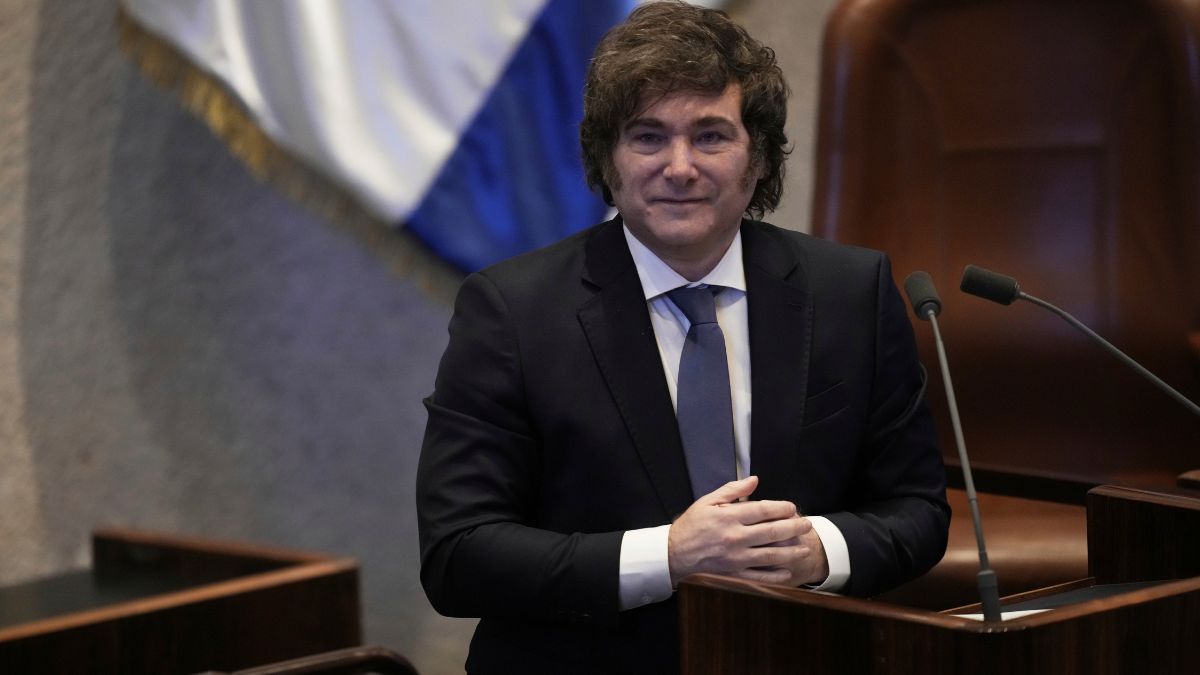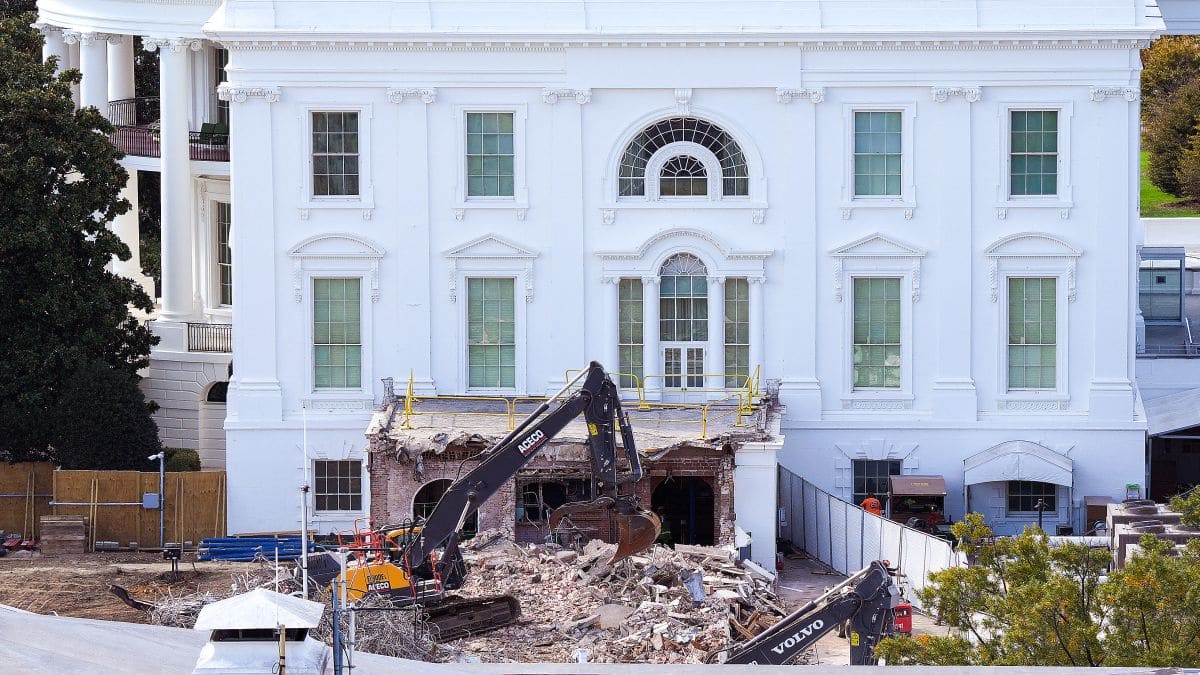Argentina’s upcoming midterm elections on October 26 have turned into a major test for President Javier Milei and for his close alliance with US President Donald Trump.
With Washington stepping in with a massive $20 billion economic rescue package, and hinting it could be pulled back if Milei’s party doesn’t perform well, the stakes couldn’t be higher for the libertarian leader and his reform agenda.
Welcoming the Argentine leader to the White House, Trump warned that the United States would not “waste our time” if Milei’s party failed to deliver. “If he loses, we are not going to be generous with Argentina,” Trump had said.
Once celebrated as a radical reformer shaking up Argentina’s broken economy, Milei now finds himself under pressure. His ability to hold on to support at home could decide not just the future of his presidency, but also the strength of his partnership with Trump, one that’s reshaping Argentina’s relationship with the US in ways never seen before.
Milei’s road to triumph
At the start of the year, pollsters and pundits were predicting a smashing success for Milei in the midterms.
His huge cuts to state spending delivered Argentina’s first fiscal surplus in nearly 15 years and pulled down monthly inflation from 25.5 per cent to 2 per cent. Argentines celebrated relief from ever-rising prices and took comfort in a strong peso that made it cheaper for them to snap up imported goods and vacation abroad.
With his approval ratings high, Milei took victory laps through Europe, Latin America and, most frequently, Trump’s Mar-a-Lago club, railing against the evils of socialism and the corruption of the political elite.
He pushed key deregulation laws through an opposition-dominated Congress, allying with the right-wing PRO party of former President Mauricio Macri and striking deals with moderate governors.
Also read: How Javier Milei’s shock therapy could not save Argentina
What went wrong?
Milei’s aura of infallibility first began to crack in February, when he promoted a dodgy memecoin on his social media account that quickly collapsed, leading to $250 million in losses for investors. Then in August, Milei’s powerful sister was accused of taking bribes from a government medicine supplier. She denies wrongdoing.
The latest blow came earlier this month, when Milei’s leading candidate in Buenos Aires province, Jose Luis Espert, dropped out of the midterm race after admitting he received $200,000 from a businessman indicted in the US for drug trafficking. He says it was for consulting services.
The controversies have hurt Milei’s reputation as a straight-talking outsider determined to tear down the corrupt establishment, experts say, particularly at this time of harsh austerity.
“It was the first wake-up call when people started to ask, maybe (Milei and Karina) are asking us to make sacrifices that they’re not making themselves,” said Eugenia Mitchelstein, the chair of the social sciences department at Buenos Aires’ San Andrés University.
At his closing campaign rally late Thursday in the port city of Rosario, Milei blamed his problems on a hostile legislature and pleaded with his supporters to prove his critics wrong.
“Despite a Congress that repeatedly attacked our program, we arrived at the elections on our feet,” Milei said. “We have the opportunity to change the face of Congress and move forward with the reforms Argentina needs.”
Strange campaigns
Milei’s once-smooth political rise has hit turbulence. His aggressive campaign strategy — fielding a string of largely unknown libertarian candidates in nearly two dozen provincial elections — has backfired. Many of these newcomers struggled to stand up to well-established rivals, leaving Milei’s movement bruised and short on victories.
His refusal to build coalitions or seek broader alliances has only deepened his isolation. Former allies and moderate factions, once open to compromise, have turned against him — passing new spending bills in Congress and overturning his vetoes in retaliation.
The road to Sunday’s midterms has been anything but smooth. In Buenos Aires province, the party’s leading candidate, José Luis Espert, quit the race after admitting to receiving $200,000 from a businessman charged in the US with drug trafficking — money he insists was for consulting work. Although veteran politician Diego Santilli has since replaced him, voters will still find Espert’s name printed on the ballot, as it was too late to reissue them.
Meanwhile, another candidate, former model and actor Karen Reichardt, has sparked outrage over resurfaced social media posts insulting Argentina’s football legend Lionel Messi and using racially charged language against opponents. She has not publicly commented on the controversy.
Markets on edge
The cracks in Milei’s support became clear after a crushing defeat in Buenos Aires province, home to nearly 40 per cent of Argentina’s population. His loss to the populist Peronists marked the first major electoral setback for the libertarian president — and a warning sign that public patience with his austerity drive is wearing thin.
With the economy shrinking, wages falling and unemployment rising, the result sent shockwaves through financial markets. Investors dumped Argentine bonds and fled the peso, forcing the central bank to use up foreign reserves to slow the currency’s fall.
That’s when Trump and US Treasury Secretary Scott Bessent stepped in with an unprecedented show of support. The US Treasury bought pesos — a currency even most Argentines distrust — and confirmed a $20 billion swap line to Argentina’s central bank, described by Bessent as a “bridge” to the midterms.
Trump also announced that Washington would increase beef imports from Argentina to help ease meat prices in the US, while Bessent revealed plans for another $20 billion in private bank loans.
Even with this financial lifeline, confidence in the peso kept sliding. Wealthy Argentines, newly free to move money abroad after Milei lifted capital controls, continued swapping pesos for dollars. The currency sank to a record low of 1,476 per US dollar.
“It’s the managerial class changing their pesos furiously into dollars who are sabotaging Milei,” said Christopher Ecclestone, a strategist with investment bank Hallgarten & Company.
Also read: In another setback to Milei, Argentina Congress limits his power to govern by decree
Trump’s rescue raises questions
Washington’s billion-dollar bailout has stirred backlash across both the US and Argentina.
In the United States, lawmakers from both parties — along with farmers, ranchers and even Trump’s own “America First” supporters — questioned the logic of funnelling money to a struggling economy often seen as an unreliable debtor and a competitor in agricultural exports.
In Argentina, Trump’s blunt warning that US aid hinged on Milei’s performance reignited anti-American sentiment. The opposition Peronists seized the moment, accusing Milei of bowing to foreign pressure.
“Compatriots, Argentina is a country too great and dignified to depend on the whims of a foreign leader,” former President Cristina Fernández de Kirchner declared in a video message from her Buenos Aires apartment, where she is serving a six-year corruption sentence.
The comments rattled investors, who began fearing that the US support package might collapse entirely. Analysts scrambled to decode Trump’s remarks — did “victory” mean simply boosting Milei’s congressional numbers, or hitting the 35 per cent threshold experts say he needs to defend his vetoes and advance reforms?
Even a sweeping win wouldn’t give Milei’s party control of Congress, as only part of the legislature is up for renewal.
Meanwhile, internal discontent is growing. Milei’s supporters flooded social media with criticism of then-Foreign Minister Gerardo Werthein, blaming him for mishandling relations with Washington. Werthein resigned on Tuesday without explanation.
Protests erupted outside the US Embassy in Buenos Aires, where demonstrators banged pots and burned American flags — a vivid sign of the unease surrounding the Trump-Milei partnership.
With input from AP


)

)
)
)
)
)
)
)
)



